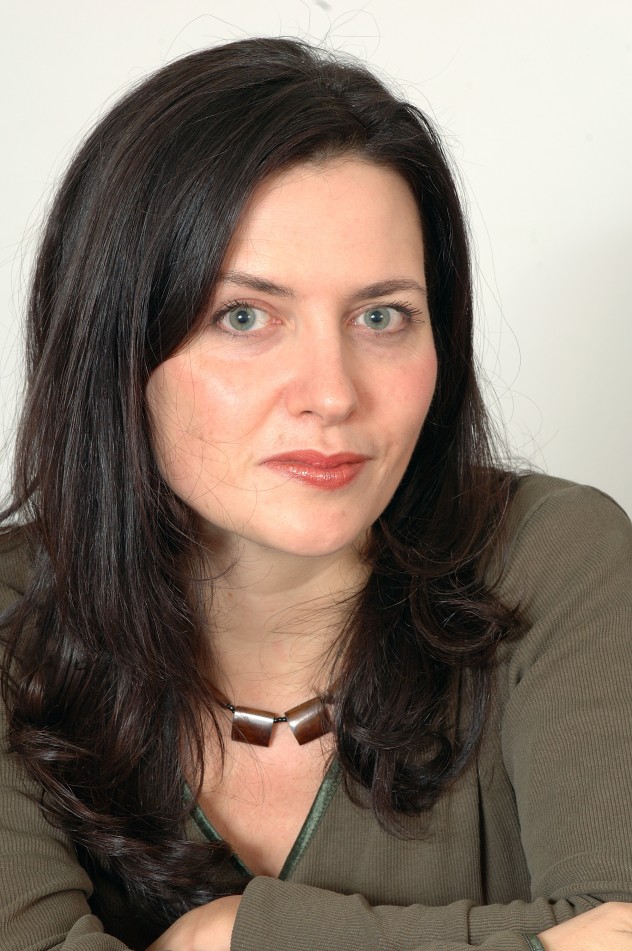
A devastated country. Desperate people. Aid workers flying in – and celebrities shedding tears in refugee camps as yet another humanitarian disaster is announced. We all recognise the story, particularly when it comes to reporting Africa. What however if the situation were reversed?
By Dr Glenda Cooper
What if it was Africans coming to Britain to help us out in the wake of a disaster? How would we feel about how such stories are told then? This was the task I set myself when I wrote a play, an extract of which will be performed next week at the Jermyn Street Theatre as part of Sheer Height’s ‘Women Redressed’ festival. In my play Aid Memoir set in the near future, Britain is in the midst of a humanitarian disaster exacerbated by a financial collapse and civil unrest in the wake of the Brexit referendum.
In the play, Martine, an aid worker from Kenya is running a camp for refugees in the UK, among them Chelle, a teenager whose middle-class life has been torn apart by the chaos engulfing the country. The situation is dire, but then Taz, an old journalist friend of Martine’s arrives in the UK with the promise of filming a celebrity appeal with the winner of Kenya’s Got Talent.
I was inspired to write it after finishing my PhD which looked at the complex relationship aid workers and journalists have at the scene of a disaster. I also teach a course on humanitarian communication at City, University of London’s journalism BA which asks students to analyse the ways that disasters are often portrayed. And for many years I was a national journalist myself as well as doing work for agencies such as Save the Children International, Save the Children UK, World Vision and UNESCO. So I’d seen both sides of the story – and seen how media coverage of disasters can make a difference.
This can often be measured in cold hard cash. In 2005, survivors of the tsunami which dominated the news agenda for weeks had more than $1,000 spent on them while other UN disasters the same year such as Cote d’Ivoire or Somalia, and which did not hit the headlines, had $50 or less per survivor, according to the World Disasters Report. So the stakes are incredibly high for aid workers who want to help as many as possible, journalists who want a good story – and most of all the survivors.

Of course, the play is fiction but I did my best to root it in real life examples. When Taz complains that the refugee camp isn’t photogenic enough for her viewers because it’s full of men and hulking teenage boys with stubble not women and children, this was the kind of issue that was raised after it was discovered most of the Indian Ocean tsunami survivors were men or when newspapers tried to do facial recognition analysis on the age of child migrants from the Calais Jungle. Martine is unable to clear the camp of those who may have been involved in atrocities elsewhere in the country – as happened with the Goma camps in the aftermath of the Rwanda genocide. And Chelle’s only possession is her phone – the sort of information that makes some sniffily question how ‘needy’ a refugee really is – but recent research shows that when refugees arrived in Lesvos, what they wanted was not food or water but the chance to charge their mobiles in order to find their families, get access to jobs and money and use tracking systems to find a safe way.
All the characters are flawed, just as they are in real life; what I wanted to do was to try to make clear that none of the answers are simple. It’s hard work delivering aid – Martine makes mistakes and cuts corners even though her intentions are good. Chelle is not the two-dimensional refugee we often see portrayed – she’s middle class, educated and will do anything to get out of her situation. And Taz may come up with the most ludicrous ideas of ‘selling’ the appeal back to her viewers who see Britain as an obscure country they don’t understand, but her idea of putting a Santa hat on a famine victim and putting a begging bowl in their hand was once floated by a major British newspaper.
The point of the play is not to excoriate aid workers or journalists – most of whom do their best when covering these stories – but to challenge us, the public about our attitudes to aid. The fact remains that we give more money to disasters that are easy to understand, have a well-known celebrity or a photogenic picture – and too easily dismiss the worthy/unworthy. So next time you watch a disaster unfold on screen – as it is currently in South Sudan, Syria or Colombia – ask yourself what if that crisis was in Southend, Sunderland or Croydon? Would we see a difference?
An extract from Aid Memoir by Glenda Cooper will be performed as part of Sheer Height’s Women Redressed Festival 10-13 April 2017 at the Jermyn Street Theatre. Tickets are price £15 (£13 concessions) and available from here.
Star appeal: in this sketch Comic Relief satirises the importance of choosing the ‘right’ celebrity to front its disaster appeal. In Aid Memoir the celebrity changes her ethnic background in order to be the face of the appeal.




